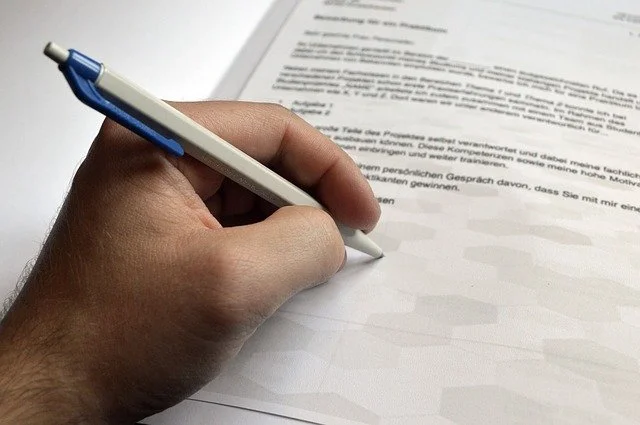The 3 biggest mistakes women make on their cover letters and resumes

Everyone makes mistakes during the application process that prevent them from coming for an interview. But did you also know that there are specific mistakes that women often make?
These Errors have a significant impact on the way a recruiter or HR manager sees them? Women often don’t realize they’re making these mistakes on their resumes and cover letters, but you’ll never make them again after this article.
This way, you will never be short of yourself in your cover letter and on your resume.
Biggest mistakes women make in cover letters or CVs
Especially if you want to become a manager or executive (later) or if you want to work in an industry that men dominate, you cannot afford these mistakes.
Not showing your worth
Women are generally more likely to be afraid of coming across as arrogant than men in their cover letters and resumes when they talk about their achievements and successes. But this is not the time to be humble.
Women, for example, are more likely to suffer from imposter syndrome: the nagging feeling that there will come a point in their career when they fail. Rationally, you know that you have talent and that you are suitable for the position, but you still have the feeling that you are fooling everyone.
Convince yourself that you are the best person for the job (even if you don’t meet all the bullet points – hardly anyone does) and show that on your cover letter and resume.
The best way to do this is to let your achievements and successes speak for you. So do not write that you are proactive, but describe an example from the past that showed this.
Don’t put a summary at the top of your resume
It is probably not news to you that some companies do not immediately look at your cover letter. Your resume should convince a recruiter or HR manager that you are the best person for the job. One way to do that is by using a summary above your resume. You immediately take the first tip with you: this is not the time to be modest.
A professional summary above your resume consists of approximately three to four sentences and is often printed in bold so that the piece of text immediately stands out. But what do you put in such a summary?
The skills you have, impressive facts about companies you’ve worked for, or – better yet – specific stats about the growth you’ve caused a company. It is also wise to mention awards, certificates, or other special moments in your career.
Using attenuating words
Wherewith the first mistake we mainly talked about the content of the application letter and the CV, we are talking about the (unconscious) use of words here. Read them carefully and see if you can catch yourself using words like ‘assisted,’ ‘I was asked,’ ‘I think,’ ‘maybe,’ ‘I hope,’ etc.
If you’ve had to highlight a word multiple times, it’s time to teach yourself more assertive language. Think of words such as ‘guided’, ‘achieved’, ‘created’, ‘enlarged or reduced’, ‘launched’, etc. Do you notice the difference?
Make sure you never make the above mistakes again. Because how is a recruiter, HR manager, or supervisor supposed to realize that you are good at your job and are the best person for the job if you (unconsciously) do not communicate that?




